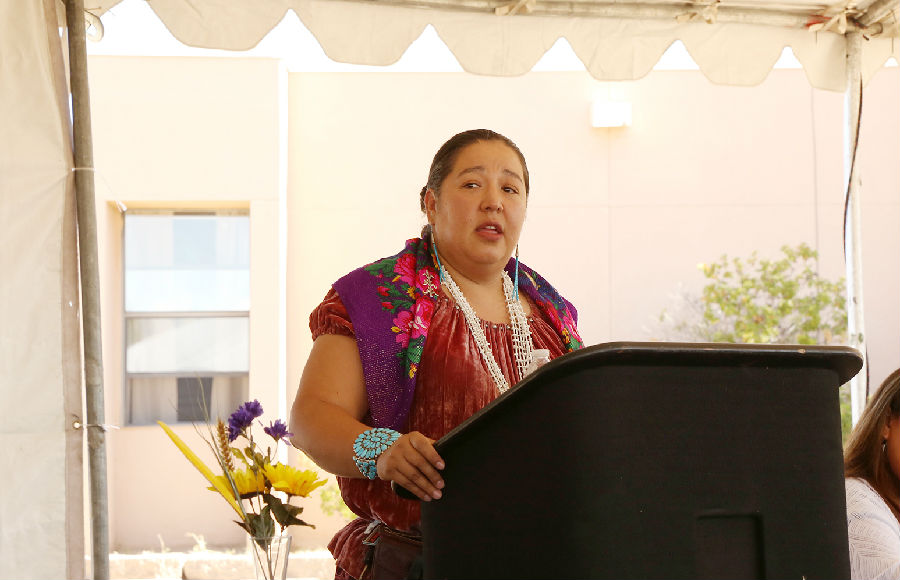JUDY WOODRUFF: Sexual assaults and abuse towards women have been given greater attention in this MeToo moment. This week's Brief But Spectacular looks at a population often overlooked in the national conversation, the Native American community. Amber Kanazbah Crotty is encouraging support of survivors, as one of the few female delegates on the Navajo Council, and is leading a nationwide campaign Start By Believing.
AMBER KANAZBAH CROTTY, Navajo Nation Council Delegate: We have more rapes on Navajo Nation than cities like Detroit or San Diego. How is that possible? That's possible because we have a systemic failure in how we report crimes, how people feel protected, how sexual violence has been normalized, and how sexual violence was used in the past to displace us from the land. We're here still on the ground just trying to get basic services, like police officers, broadband service. If we could get 911 on Navajo Nation, we would be doing something spectacular. We're literally in the dark when it comes to telecommunication, when it comes to emergency response. We have one shelter here, and it can only house eight people. I sit on the Navajo Nation Council here in Window Rock, Arizona. My family originates from the Sheep Springs area along the Chuska Mountain, where we have been for many generations. So my family's story and the story of myself is like so many Navajos, a story of being forced away from land, a story of forced removal of our grandparents into the school system. That means dealing with intergenerational trauma, knowing that my grandmas who returned from the Long Walk, the pain and sorrow of losing their home, their relatives, their animals, and then coming back and rebuilding and using our land, using our prayers, using our ceremonies to continue that strength.

They put literal prayers in the ground for us, for me, for my children, to know that we would come back home, to know that I would be standing here one day in the leadership position, helping my people. As a Navajo woman, I can talk about topics that our Navajo men, our leaders have not felt comfortable talking about, allowing me to tell my story on the floor of not only my experience being groped by an elected official while I was a political staffer, but to tell the story of what's going on in our communities. That's a story of families that are steeped in violence, using alcohol and drugs to numb their pain. It's boys who were molested and traumatized who are now men who are in silence because they're vulnerable. Individuals at every single level have been touched by this. Family members, community members, professionals have told me that they have been either a victim of violence, sexually assaulted, a survivor. The crisis of violence against Navajo women, we're just at the tip of the iceberg. We have to change that, that norm that me hearing young girls saying, not if it's going to happen, when we do our prevention work, but what do I do when it happens? My name is Amber Kanazbah Crotty, and this is my Brief But Spectacular take on revitalizing Navajo communities.
JUDY WOODRUFF: So hard to hear, but so important to share. Thank you.












